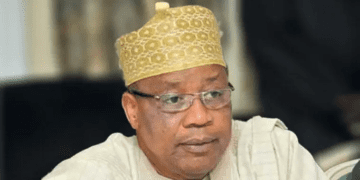Some Nigerians who suffered injustices under General Ibrahim Babangida’s (retd.) military regime have renewed calls for his prosecution, condemning the fanfare surrounding the launch of his autobiography, A Journey of Service, on February 20, 2025.
In separate interviews with Sunday PUNCH, victims and their families recounted their ordeals, emphasizing that the former leader should be held accountable for human rights violations, press suppression, and the controversial annulment of the June 12, 1993, presidential election.
Babangida’s administration (1985–1993) was marked by crackdowns on opposition, including the closure of media houses such as PUNCH Newspapers, The Guardian, and Newswatch Magazine. Investigative journalist Dele Giwa was also assassinated by a parcel bomb during his tenure, a case still linked to state-sponsored violence.
Prominent human rights activists and lawyers, including Chief Gani Fawehinmi, Femi Falana (SAN), and Femi Aborisade, were jailed for opposing his government. Some, like Aborisade, insist Babangida should be imprisoned for life.
“The annulment of June 12 was a coup against democracy, leading to mass bloodshed, exile, and mysterious deaths,” said Debo Adeniran, President of the Committee for the Defence of Human Rights.
Similarly, TV personality Morayo Brown, daughter of the late human rights lawyer Alao-Aka-Bashorun, criticized President Bola Tinubu for celebrating Babangida, recalling how her father fought to hold him accountable.
Pro-democracy activist Omoyele Sowore and Jonathan Vatsa, younger brother to Babangida’s childhood friend General Mamman Vatsa—who was executed under his regime—also demanded justice, with Vatsa insisting the former leader make restitution.
Meanwhile, Babangida’s claims in his book regarding the 1966 coup and the annulment of June 12 have sparked further controversy. Raees Abacha, grandson of late General Sani Abacha, dismissed his narrative as “treacherous,” while netizens remain divided over his revision of historical events.
As the debate continues, calls for Babangida’s prosecution and the demand for historical accountability grow louder.







